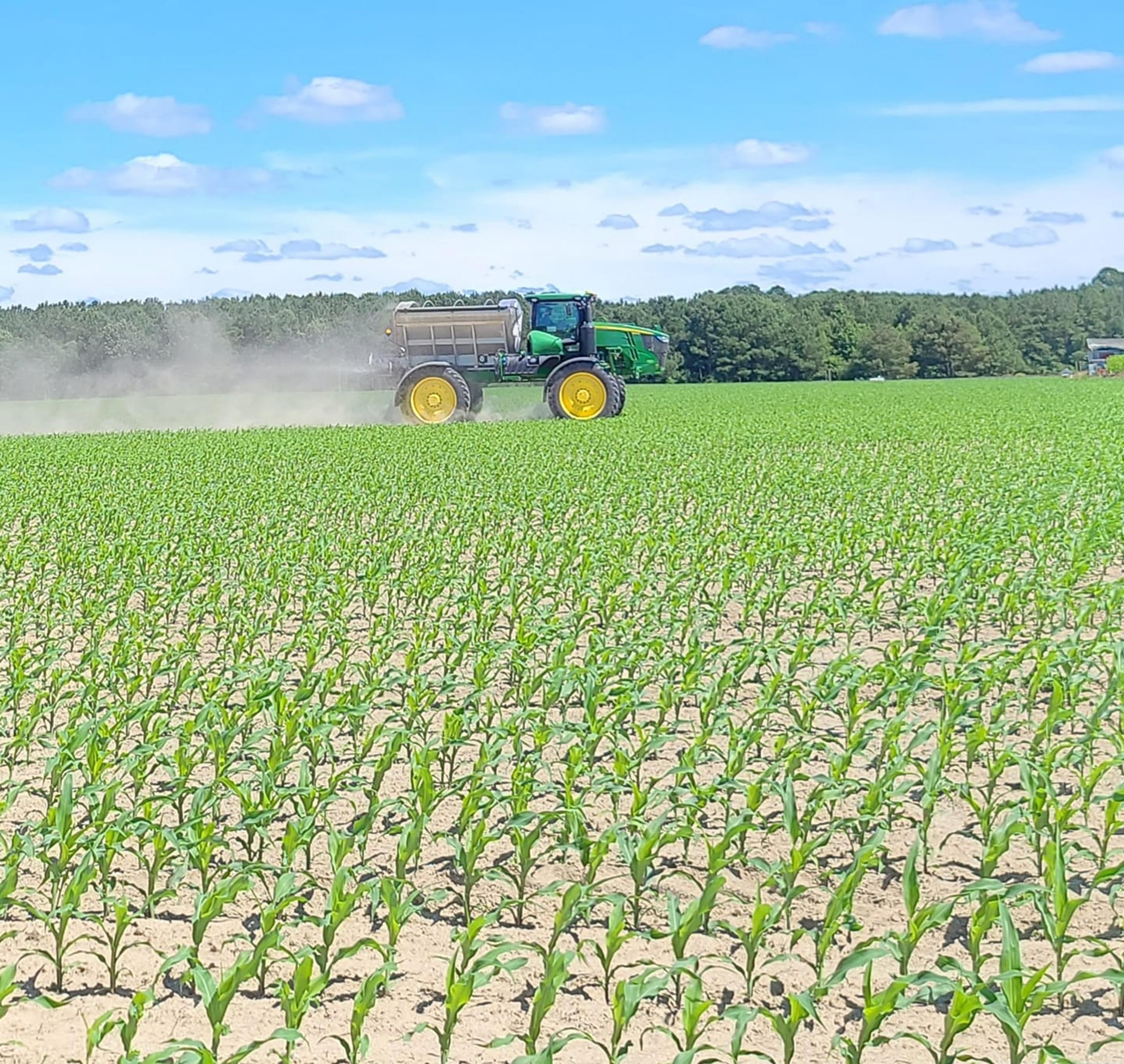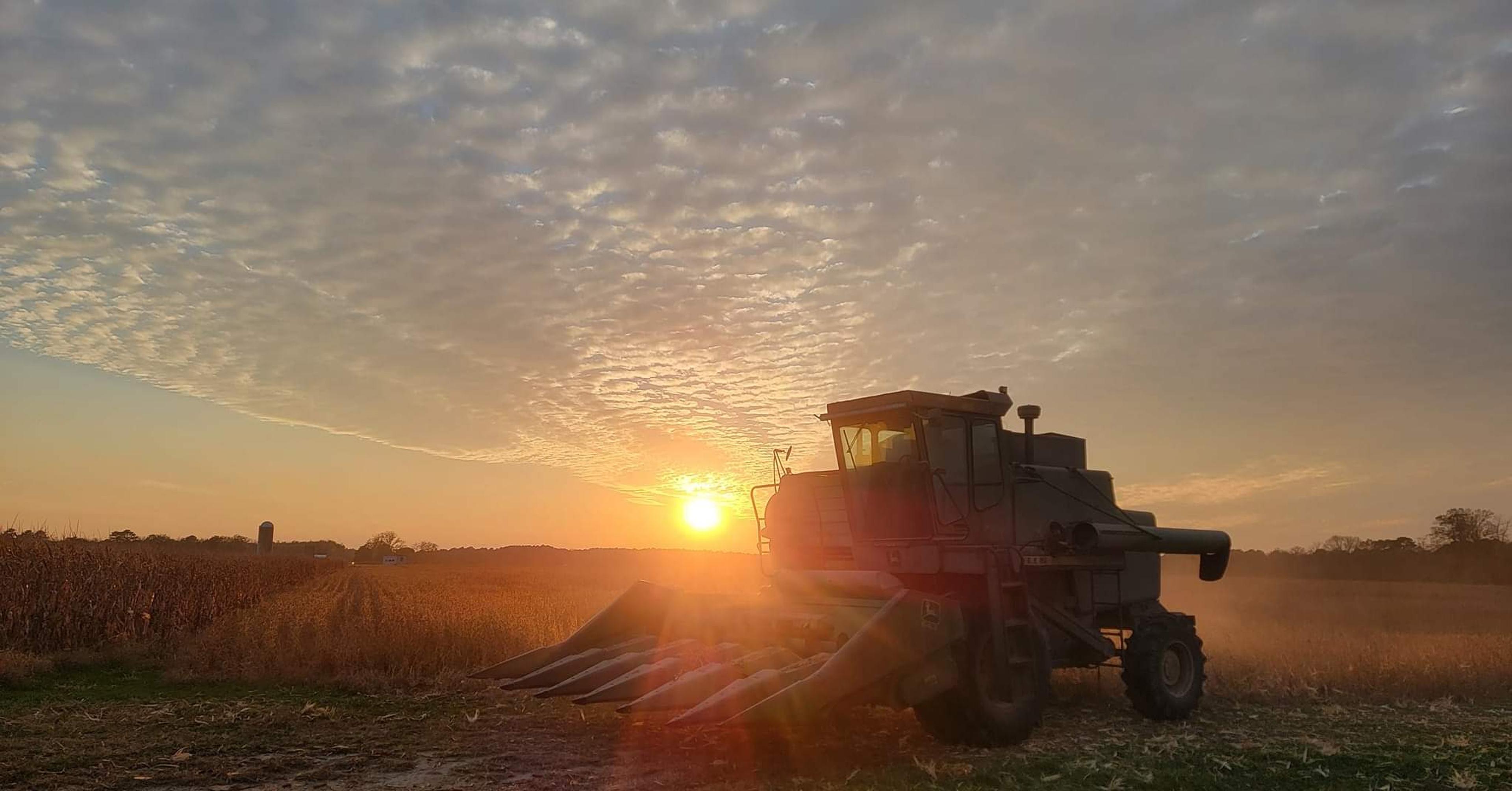When you’ve been farming the same land for over a century, you develop a deep understanding of cycles: planting and harvest, boom and bust, tradition and change. Lee and Jo Ellen Carey have spent years mastering these rhythms across multiple enterprises. This year, they discovered how the right approach to bookkeeping could transform not just their business operations, but their quality of life.
The Lee Carey farm sits on land purchased in 1905, where Lee's grandparents started what would become a multi-generational operation. Like many family farms, it evolved with the times, beginning as a dairy farm before transitioning to grain farming and beef cattle when dairy operations became unsustainable in the early 90s.
When Lee's father passed away in 2007, the responsibility shifted. "I kind of took the reins at that point," Lee recalls. "And it was a lot paperwork-wise, which fell on my wife [Jo Ellen]."
Today, the operation is complex and diversified: they run cattle and horses, grow corn and soybeans, operate a lawn care business, and are expanding into high tunnel vegetable production. But for years, managing the books for this multifaceted business was taking a toll.
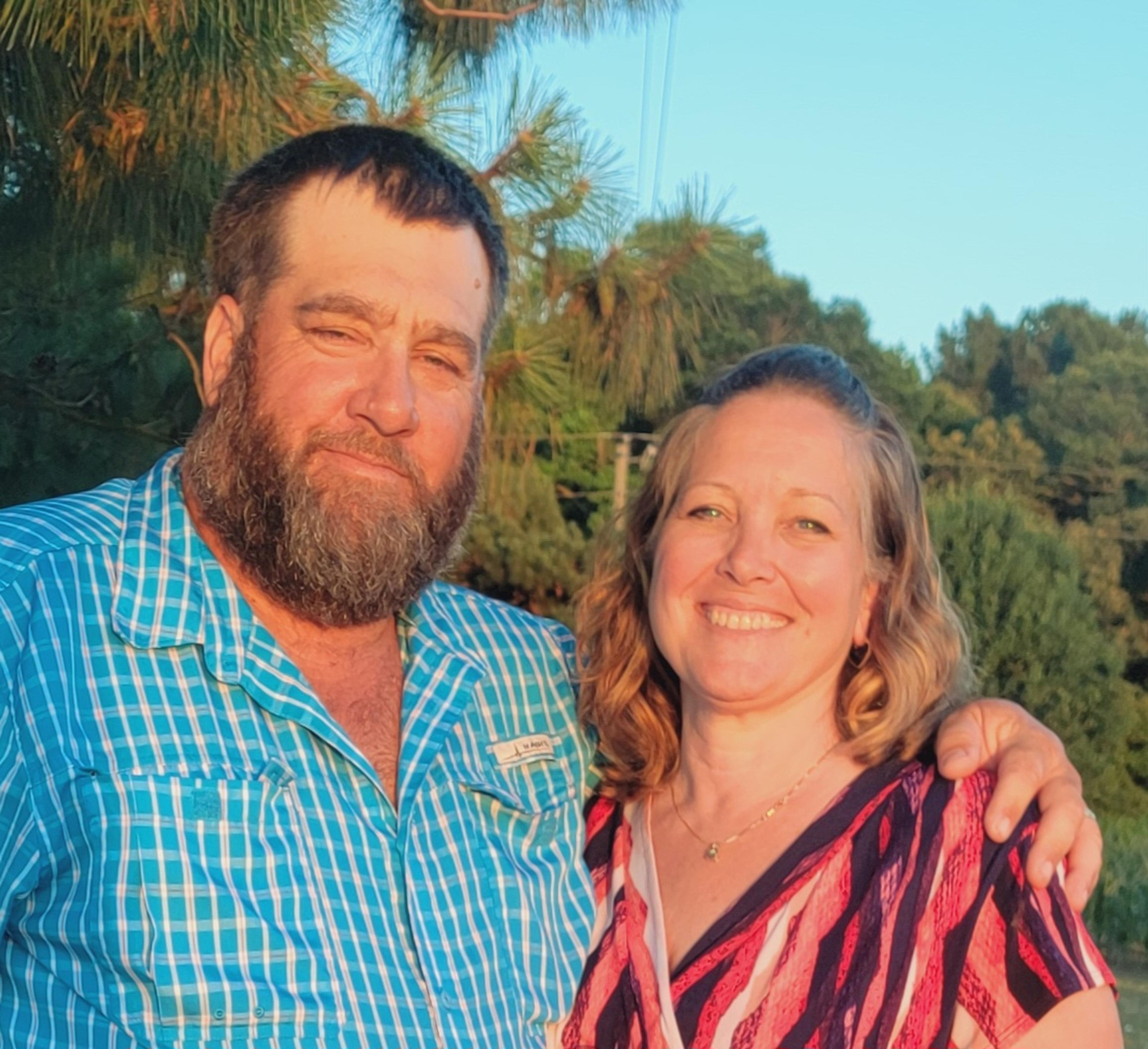
Problem: Boxes and boxes of receipts
Every year, tax season preparation stretched from the holidays through the spring.
"From basically right after Christmas all the way through March 1st, we were going through receipts,” explains Lee. “A lot of times we'd have to get an extension and push it into April or May to try to get taxes done. It was probably at least 50 to 60 hours a week. Weeks of just going through this receipt and that receipt and asking what was this for? Then logging it, writing it down, typing it in."
Jo Ellen, who's handled the financial side of the operation for the last several years, describes the scene: "It was shoe boxes and Walmart bags full of receipts. It was just disorganization. It was a nightmare."
The process consumed their lives during those critical months. "I'd go to work during the day, come home at night and sit down until midnight,” Lee recalls.
But the real cost wasn't just time. "It was high anxiety," Jo Ellen remembers. "He would constantly be asking me, so what do my numbers look like? And I'd be like, dude, honey, there is no way I can know with this mess. It's a nightmare."
Solution: Trying to find a tool for the job
Jo Ellen had tried to create order from the chaos, building elaborate spreadsheets in Google Sheets based on FSA record books. "I had taken a paper book from the FSA office in Accomac County, Virginia and made an Excel or Google Sheets book that I could do data entry into. And then I would have to do all the formulas myself."
The system worked, but not well enough considering the complexity of their operation. With Lee running both the farm and a lawn care business, receipt management became a constant source of friction. Every transaction required phone calls to clarify what was for which business, forcing Lee to stop his work to answer questions from Jo Ellen about receipts that might be weeks old.
"We were having a lot of phone call meetings, you know, and he'd have to stop his tractor or the lawnmower," Jo Ellen recalls. Lee adds, "By the time we’d get done, we’d have killed an hour doing four or five receipts."
The Careys knew that they were caught in a cycle that was unsustainable. As Lee puts it: "It felt like we were on a ship in the ocean with a small hole in it. It was just getting lower and lower and lower."
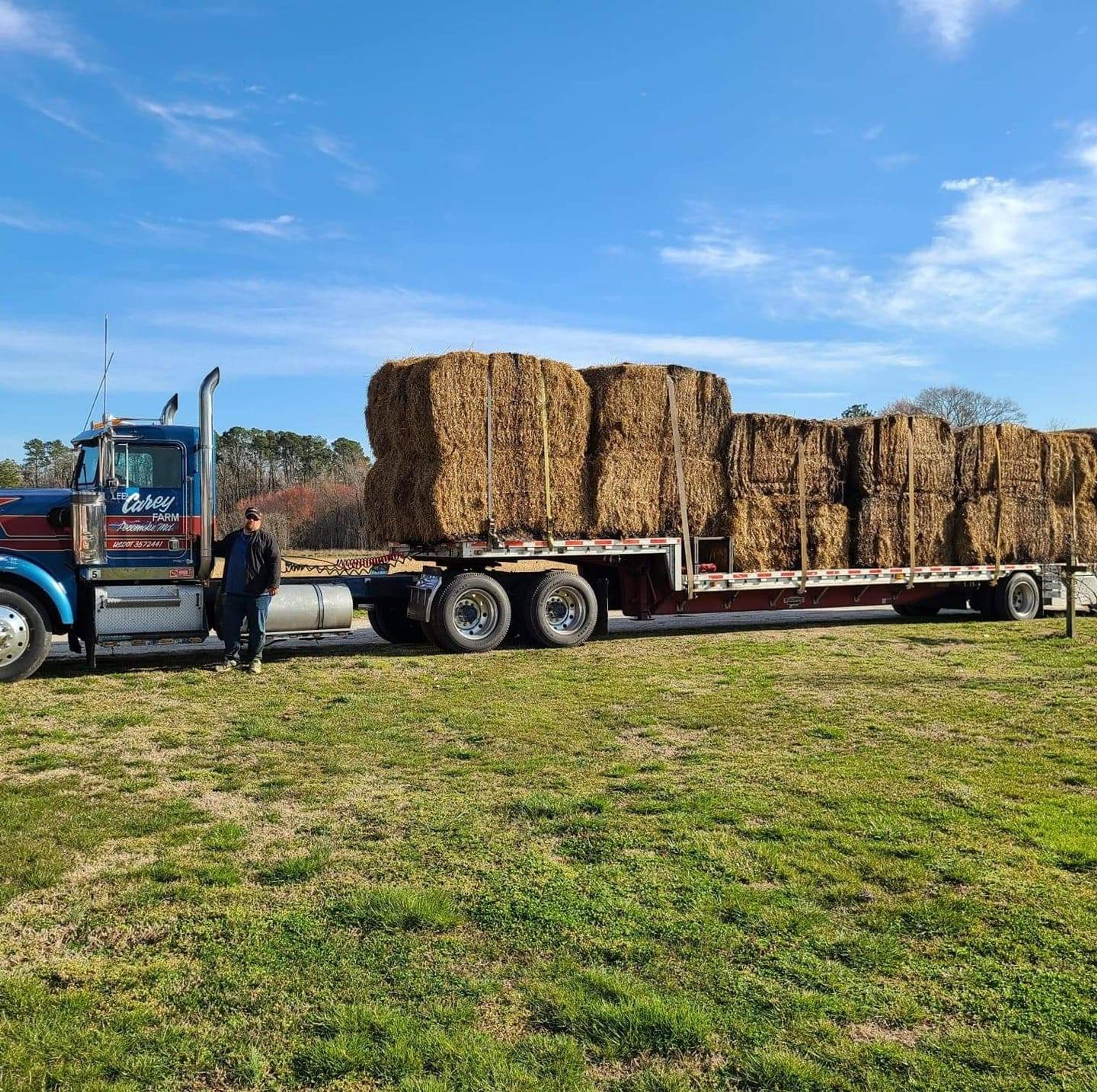
Discovery: Finding Ambrook
The discovery came through Facebook, where Jo Ellen was active in farming community groups. "I saw other reels of farmers talking about Ambrook and how it helped them," she remembers. "And I said, babe, can we try this, please? You know, please help me, because I was really overwhelmed."
Lee admits he was initially skeptical. "I was like 100 bucks a month for spreadsheets. Really? Do we need that?" But Jo Ellen corrected him immediately: "It's not spreadsheets." After seeing the system in action, Lee's perspective shifted completely: "After we got it set up and going and I started to watch what it did, I could see that it's definitely worth the cost, if not more."
The transformation was immediate and comprehensive. "With Ambrook every day, you can see what your profit and loss is," Jo Ellen explains. "You're linked into all your bank accounts. If you've got multiple banks, you've got it all right there. You've got your assets, you've got your profit, you’ve got your losses, you’ve got your expenses. Everything's right there."
The mobile app solved a big pain point as well, making receipt management across multiple enterprises easy and quick. "I like that Ambrook is linked to my phone," Lee says. "When I get a check, I can take a picture, put it in Ambrook, and deposit it.”
The tagging system also eliminated those constant phone call interruptions. "Now when he gets a receipt, he can just take a picture of it and hit that tag that says, This is for lawn care. This is for the farm. This was for gas," Jo Ellen explains, “which has made my bookkeeping end of things so much easier than waiting for him to bring home a receipt and trying to figure out what it's for."
The ease of use was crucial for Lee, who readily admits: "I know nothing about a computer." Yet he found Ambrook intuitive: "For somebody that doesn't know anything about electronics, if you've got the basics on your phone or computer, it's easy to follow."
And when they do need help, Ambrook’s human support has made all the difference. "When I need help, I just type in a message to somebody. And I don't get an AI-generated person. I get a human being answering me back," Jo Ellen says. "To me, that is everything. Because I hate talking to a computer. You know, that personal touch is getting lost by so many these days. But Ambrook covers that. They’ve got real people. So I love it."

Results: From hours to minutes
The time savings have been dramatic and life-changing. "Literally bookkeeping now takes minutes," Lee says. The process that once consumed entire evenings now happens in real-time: "If I'm at the gas station and I get two gas cans full of gas, I get my receipt when I come to the truck, I just click and lawn care’s done."
The numbers tell the story: "What would take probably months worth of paperwork before, now takes 10 minutes."
But perhaps the most telling measure of success is what Jo Ellen says simply: "Tears are not happening now."
The easy categorization system has streamlined everything: "It's the ease of use. You go in and you have your ledger and you see all the costs right there. You pick your tabs and bit bop boop. That was gas. That was for lawn care. That was seed purchased for the farm. Easy."
The impact extends far beyond bookkeeping. With real-time financial visibility, they can make informed decisions about their operation. "How much did I spend on gas this month? How much did I spend on diesel fuel this month? How much did those cows cost again? Okay, now we can see that we can afford to add another cow to the herd or, maybe we see, that oh we better sell one. It's so much easier."
Impact: Growth and family time
With their bookkeeping nightmare behind them, the Careys are expanding in ways they never could before. "We have cows. We have horses. He grows corn and soybeans. And now we're doing a hay program," Jo Ellen lists. "And yeah, we're trying to expand, and Ambrook is really helping us with that, with keeping track of everything, income and expenses."
They're diving deeper into vegetable production and entering the High Tunnel program to extend their growing season. "I'll be able to get in the High Tunnels and spend more time with produce, planting, harvesting, cleaning up," Jo Ellen explains.
But the most meaningful changes are personal. "I'm spending more time with my family. That's big. I'm not as stressed going, oh, my God. I need to be in the books. I can actually enjoy my family,” says Jo Ellen. “I've been able to spend some time out in the garden with my granddaughters planting corn this weekend. That is something that I wasn't able to do."
Lee, who serves as president of the Great Pocomoke Fair, can now dedicate time to community service without the guilt of neglected bookkeeping. Jo Ellen says, "Ambrook has taken our time here at the farm and help streamline it so he can spend more time at the fairgrounds instead of me going, I need you home. I need you to help me go through this mess.”
The business itself is healthier too. "I can expand the business. I can do more at the farm and not be overwhelmed with bookkeeping anymore," Jo Ellen notes. "We've got a garden started again. We're growing our cattle herd. Ambrook is allowing me to keep track of our animals. I love it."
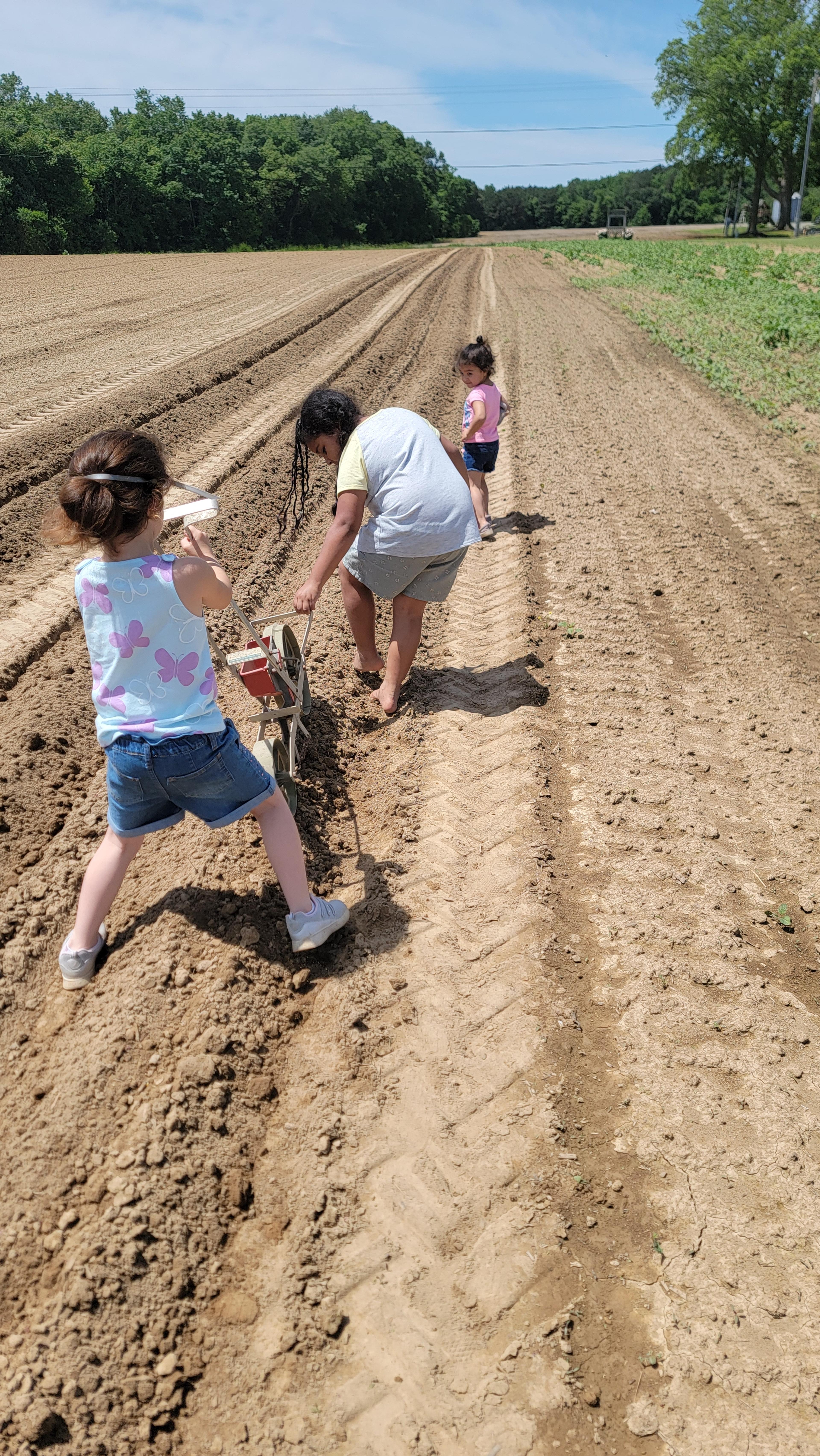
Transformation: From sinking ship to steady course
Lee's analogy captures the magnitude of their transformation: "With Ambrook, I feel like that hole in the ship has been patched and there's a pump pumping the water out, and it's starting to come back up again. I really feel like it's a turn in the right direction for all of my operations."
He extends the metaphor when describing what Ambrook provides: "It's like a mechanic trying to be a mechanic with no tools. Ambrook is the toolbox. It has everything in it you need. Whereas if you're a mechanic and you don't have any tools, you can't fix anything. You're like, Which way do I go? What do I do?"
For a farm that has weathered over a century of agricultural changes since 1905, this shift represents something meaningful. It's not just about better bookkeeping. It's about reclaiming time, reducing stress, and creating space for both growth and family.
"If you're a farmer, if you're looking at software to streamline your business and keep track of your records, you need Ambrook."
The work is still demanding. The seasons still turn. The cattle still need tending, and the crops still need harvesting. But now, the Careys face it all with clarity, confidence, and — perhaps most importantly — time to actually enjoy the life they're building on land that's been in their family for over a century.
